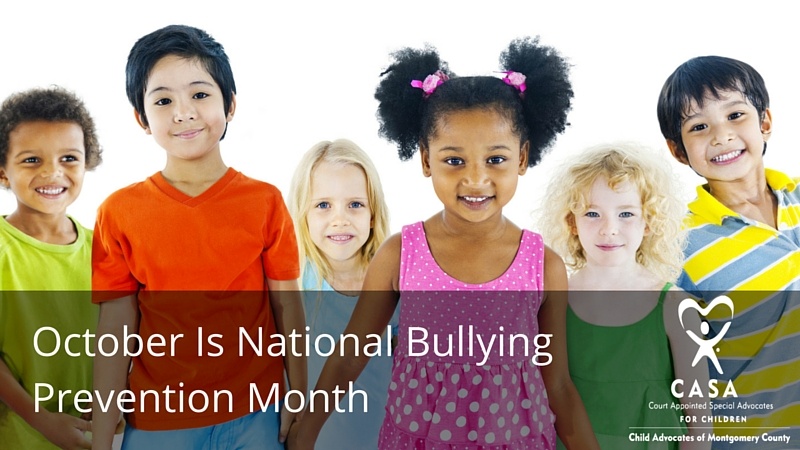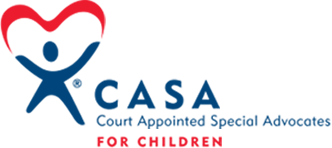October Is National Bullying Prevention Month

October is National Bullying Awareness & Prevention Month. As we continue to fight for stability in the lives of abused and neglected children, this is a time to reflect on the emotional and physical abuse that comes not from an abusive home, but from other children.
There are many risk factors that contribute to children being the bully or victim:
| Bullies are likely to: | Victims are likely to: |
| suffer symptoms of depression | suffer symptoms of depression |
| experience suicidal ideation | experience suicidal ideation |
| suffer from psychiatric problems | suffer from psychiatric problems |
| suffer from eating disorders | suffer from eating disorders |
| engage in substance abuse | suffer feelings of loneliness |
| engage in fighting behaviors | have low self-esteem |
| engage in criminal misconduct | suffer from anxiety |
| engage in academic misconduct | be less popular than other children |
| have parents who use punitive forms of discipline | spend a lot of time alone |
| have less responsive and less supportive parents | have suffered child abuse |
| come from harsh home environments | have less responsive and less supportive parents |
| have poor parent/child communication | come from harsh home environments |
| lack adult role models | have parents who allow few opportunities to control social circumstances |
| have suffered child abuse | have problems with school bonding |
| have lower school bonding | have greater rates of absenteeism |
| have lower academic achievement | have problems with school adjustment |
| have lower school adjustment | experience physical health problems |
| have authoritarian parents |
Notice that many of the factors are the same. Children in the welfare system are far more likely to have these risk factors, making them more likely to be bullied, or be the bully.
Much of the advice given to children to avoid or stop bullying is centered on community awareness. Advice like:
- Know which students to avoid on the bus
- Find a safe route to and from school
- Know which adults to report bullying to
- Always stay with a group of friends
This advice, while helpful for most children, might not be for children in the welfare system. These children often move schools and/or foster homes frequently; they don’t have a sense of stability or know who to turn to for help.
Isolation only adds to bullying as it makes them appear vulnerable.
This month, and every month we should take the time to learn the signs of bullying and know how to identify when a child is being bullied, or being the bully. Help us create a safe environment for all children to grow up in.
To learn more about CASA Child Advocates of Montgomery County and how we work to provide children in the welfare system secure homes in which to grow up, explore our website and discover how you can become a CASA Advocate.
